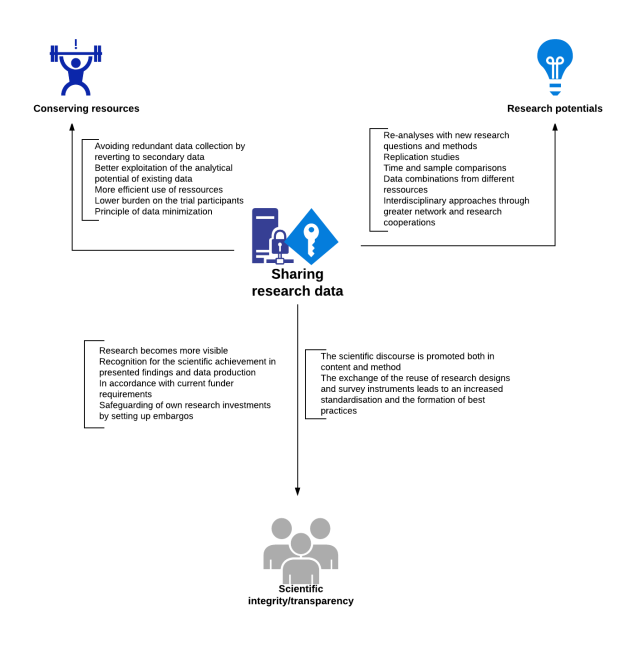Further information
Policy of the University of Hohenheim
From March 2024, the University of Hohenheim has had Open Science guidelines.
The principles of good scientific practice form the basis of all scientific work and are a crucial prerequisite for excellent research. Rules of “good research practice”.
Research data policies define for all staff members of an institution (e.g., university institute) which procedures are to be used for research data management.
Subject-specific recommendations (selection)
On DFG page you will find subject-specific statements that are used in DFG review boards.
- Biology (Biodiversity): Guidelines on the Handling of Research Data in Biodiversity Research (DFG)
- Life Sciences: Good Laboratory Practice, Good Clinical Practice
- Economic Sciences (in German): Research data management in economic sciences
- Psychology: Management and provision of research data in psychology: (German Psychological Society, DGP)
More information can be found here (in German): Guidelines and policies
Higher-level recommendations
Advantages of data sharing
Data sharing opens new potential for research and saves resources. If research data is published using national and international information portals, then its faster retrieval can make a significant contribution to the reputational gains of the person producing the data. Scientists’ research becomes more understandable to others and is then reproducible and can be verified.
Another advantage of data sharing is the time and work saved by using well-documented data. This procedure enables a more efficient handling of research findings since they do not have to be collected again. Saving resources and reducing costs are clear advantages, which is why data sharing is also a kind of “resource and knowledge” sharing.
Guides, Links, Tools
Links
- Licensing of research data:
Open content licenses: Guidelines for the practice
SHERPA/Romeo list gives information about which publishers permit self-archiving.
open-access.net gives information on terms of use
- Data protection:
Information on data protection law
Does the GDPR apply to your research data?
Interactiv Virtual Assistant 1 : IVA1 (BERD-NFDI)
Lawful consent for data processing
Interactive Virtual Assistant 2: Tool IVA2 (BERD-NFDI)
Fu-Push-Dossier from the Humboldt Universität
Instructions for anonymization (DIPF)
Informed consent (DIPF)
Ethical aspects of research data management
Manuals
Guidelines on research data management
finding-citing-documenting
Exercise materials
RDM for agricultural scientists and biologists
RDM in social, behavioral, and business and economic sciences
Do you have questions or comments about this site? contact form

